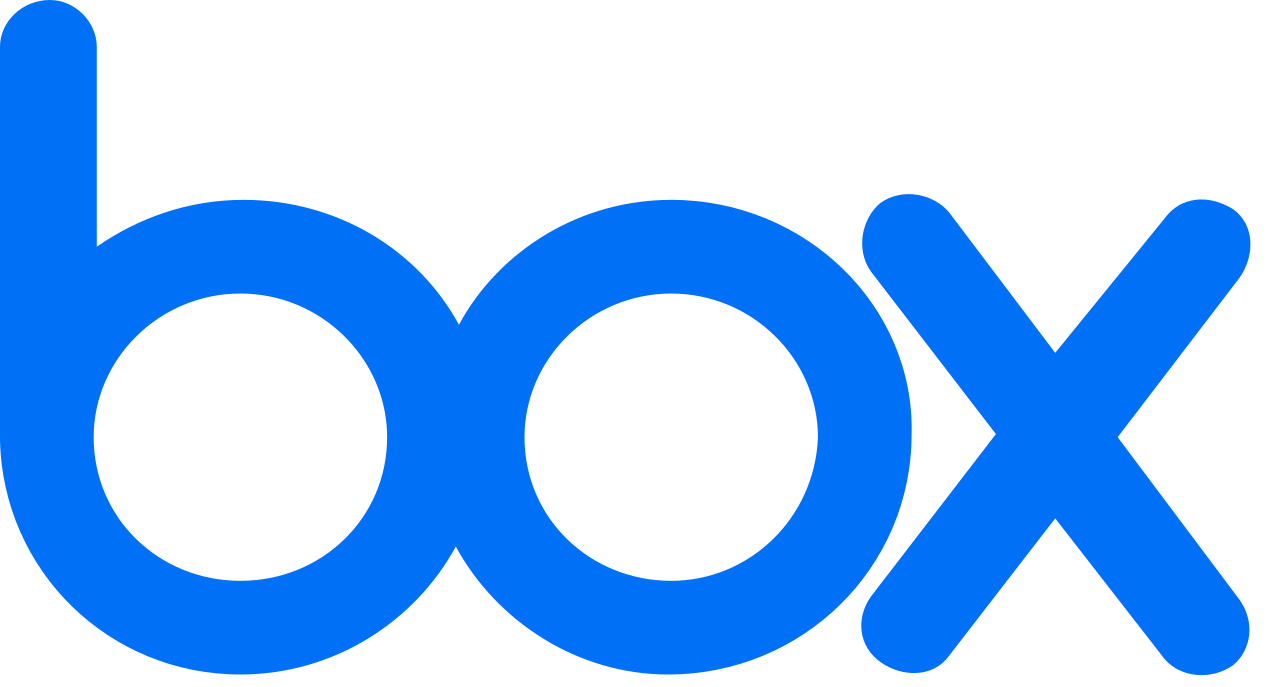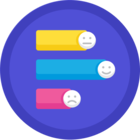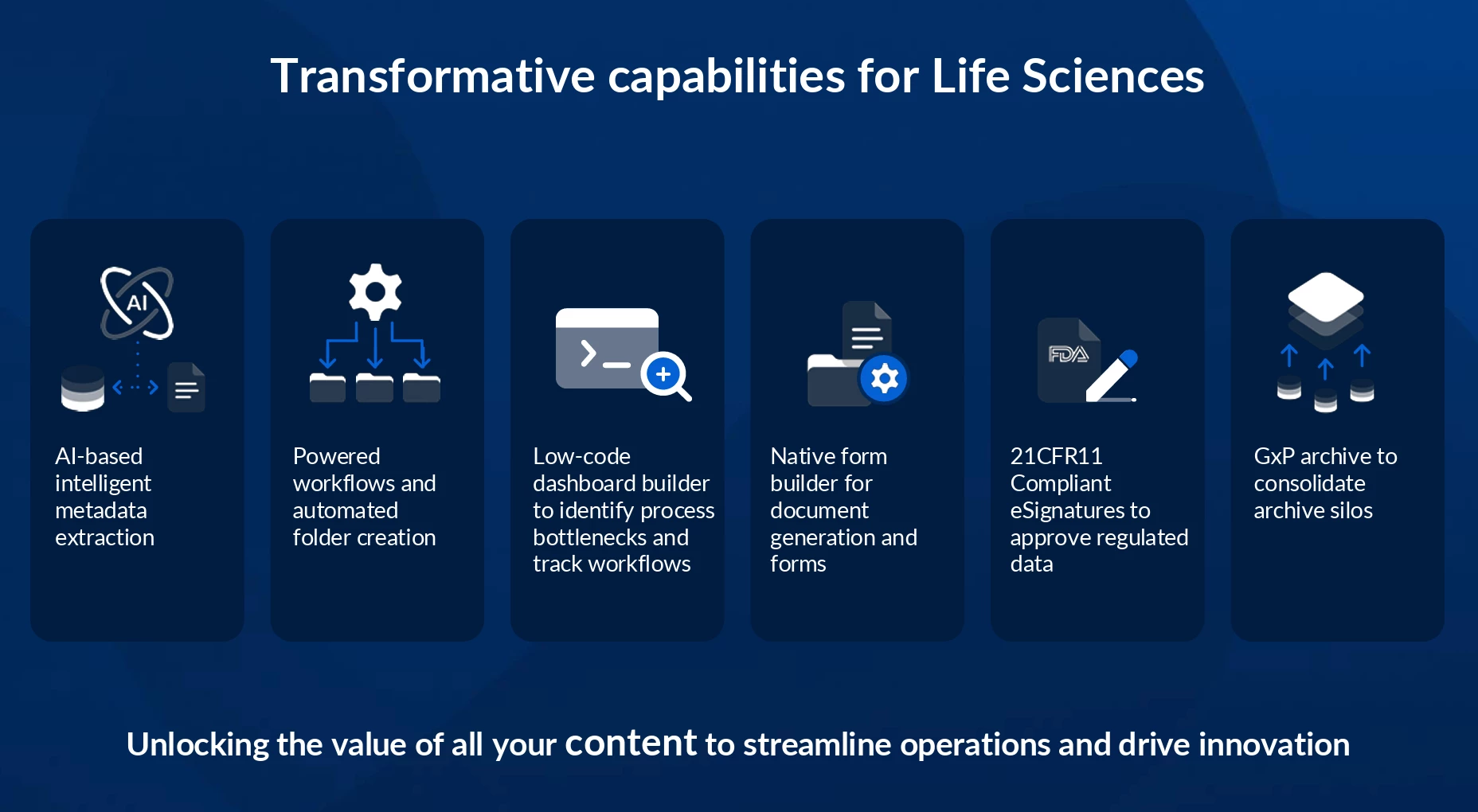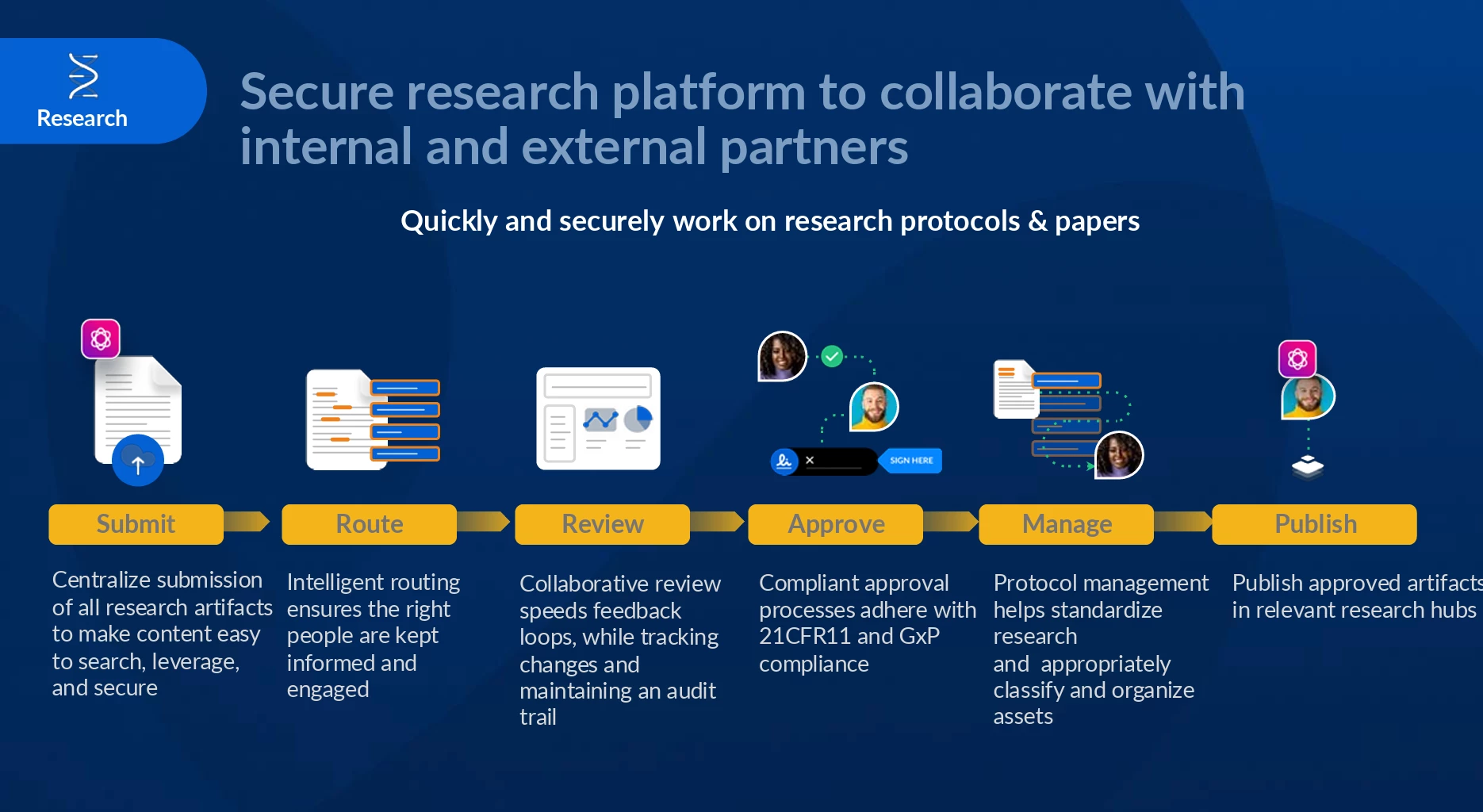Thanks to Manu Vohra, MD for Life Sciences,
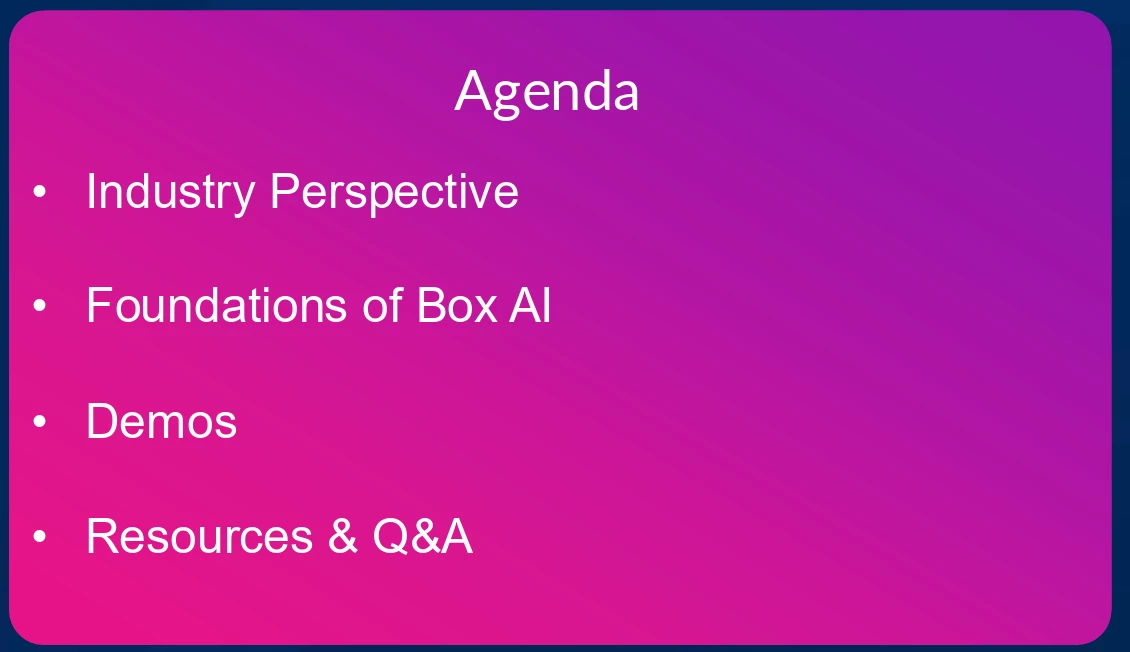
Setting the Stage for Life Sciences Industry Challenges
Manu Vohra, who leads Life Sciences at Box, began the discussion by setting the industry context, highlighting the complexity and expense involved in bringing drugs to market. He highlighted key challenges, including the prolonged timeline and monumental costs:
“It costs a bit of $2,000,000,000 to bring the drug to market. Most of that…is from R&D, and it takes roughly ten years to actually get it all the way from when it’s a baby molecule until it’s actually in files.”
The Evolution of Technology and Process
Manu discussed how modern systems prioritize protecting data flows rather than solely building digital "walls" around information. Automation and artificial intelligence (AI) now serve as enablers of compliance and efficiency, eliminating bottlenecks:
“AI is actually going to support our flows and automations to essentially make them smart, learn from mistakes, and correct themselves.”
The Role of Box in Life Sciences
Manu shared how Box meets the unique needs of the life sciences sector by supporting a variety of critical use cases. These include:
-
Research portals
-
Clinical study management
-
Regulatory authoring
-
GMP (Good Manufacturing Practice) record digitization
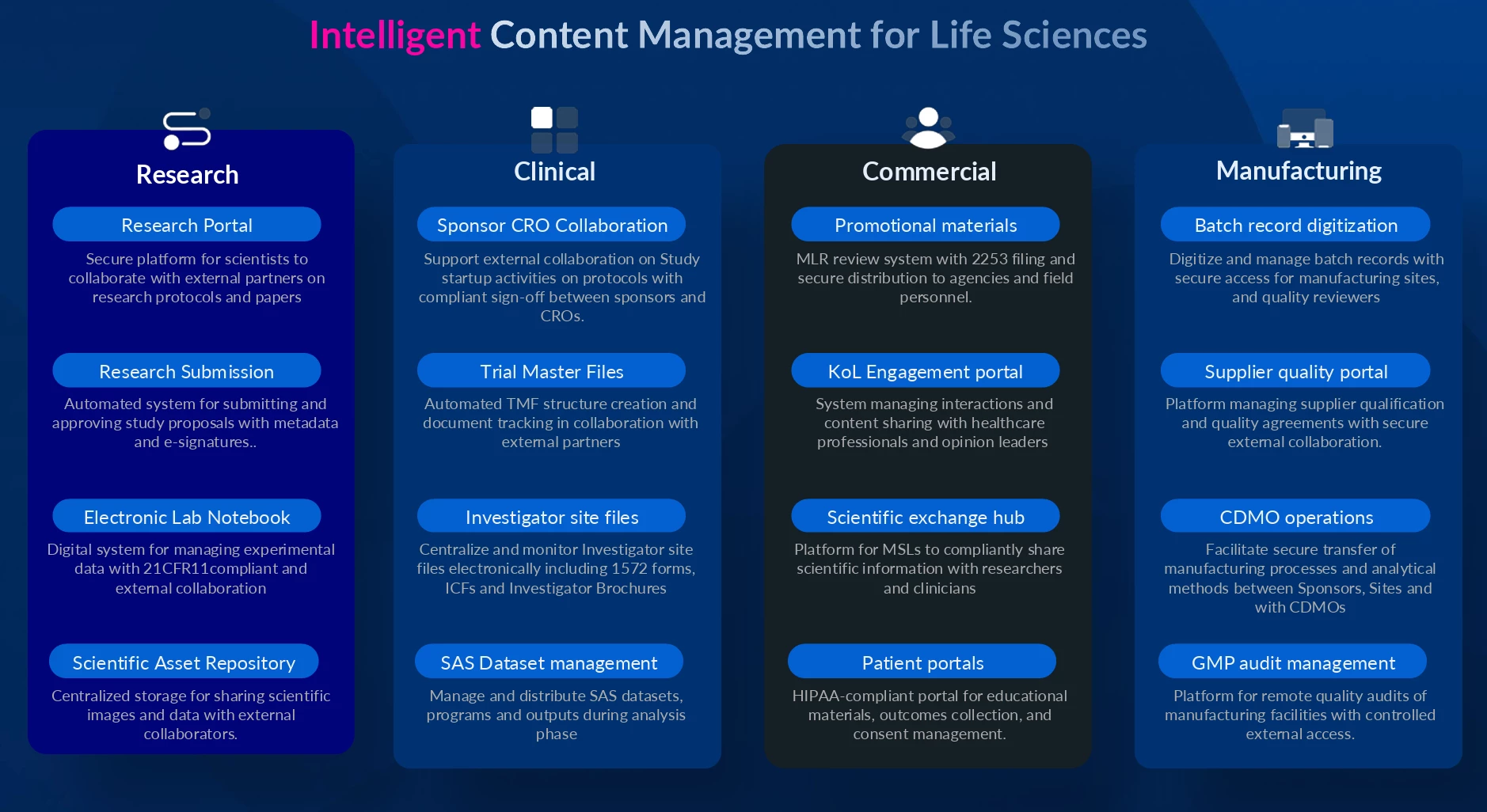
Through Box, companies digitize batch records, streamline attestations, and adhere to compliant eSignatures and archiving requirements. Manu also shared capabilities that are empowering clinical research teams and organizational workflows:
Features From Box
Manu outlined several new Box tools designed to simplify operations and strengthen compliance:
-
Intelligent AI Capabilities: Metadata extraction improves data management and reduces manual workloads.
-
Dashboards to Monitor Processes: Customizable dashboard builders allow teams to track workflows in real-time.
-
Integrated Form Builder: Teams can create forms natively within Box and use metadata to generate related documents.
-
Compliant eSignatures: 21CFR11 Compliant digital signing to meet regulatory obligations.
-
Record Archiving: GxP archival capabilities allow secure preservation of GxP records.
Advancing Clinical Research with Box AI
According to
Better Data Extraction and Workflow Automation
Using AI-driven tools, Box enhances both metadata extraction and data automation processes. Ryan explained how enterprises can extract key insights—such as names, dates, and classifications—from unstructured data and leverage automated workflows for improved operational efficiency.
“AI can classify documents and even launch workflows, all without the manual lift… This results in faster strike cycles, stronger compliance, and fewer bottlenecks.”
Multi-Document Analysis & Integration
Another feature demonstrated was multi-doc querying, which allows users to analyze information across multiple reports or documents simultaneously—a significant advantage for clinical and quality teams dealing with complex datasets.
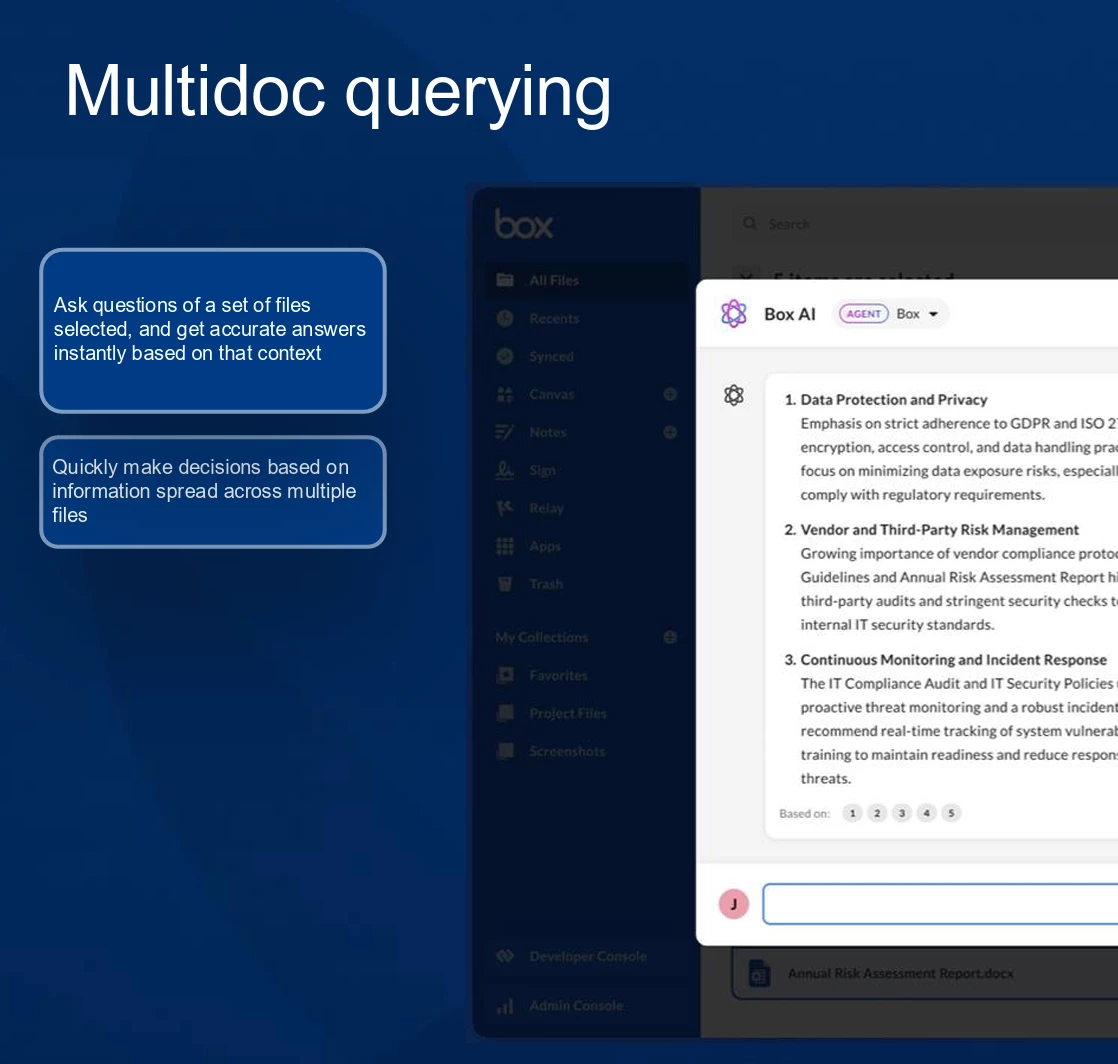
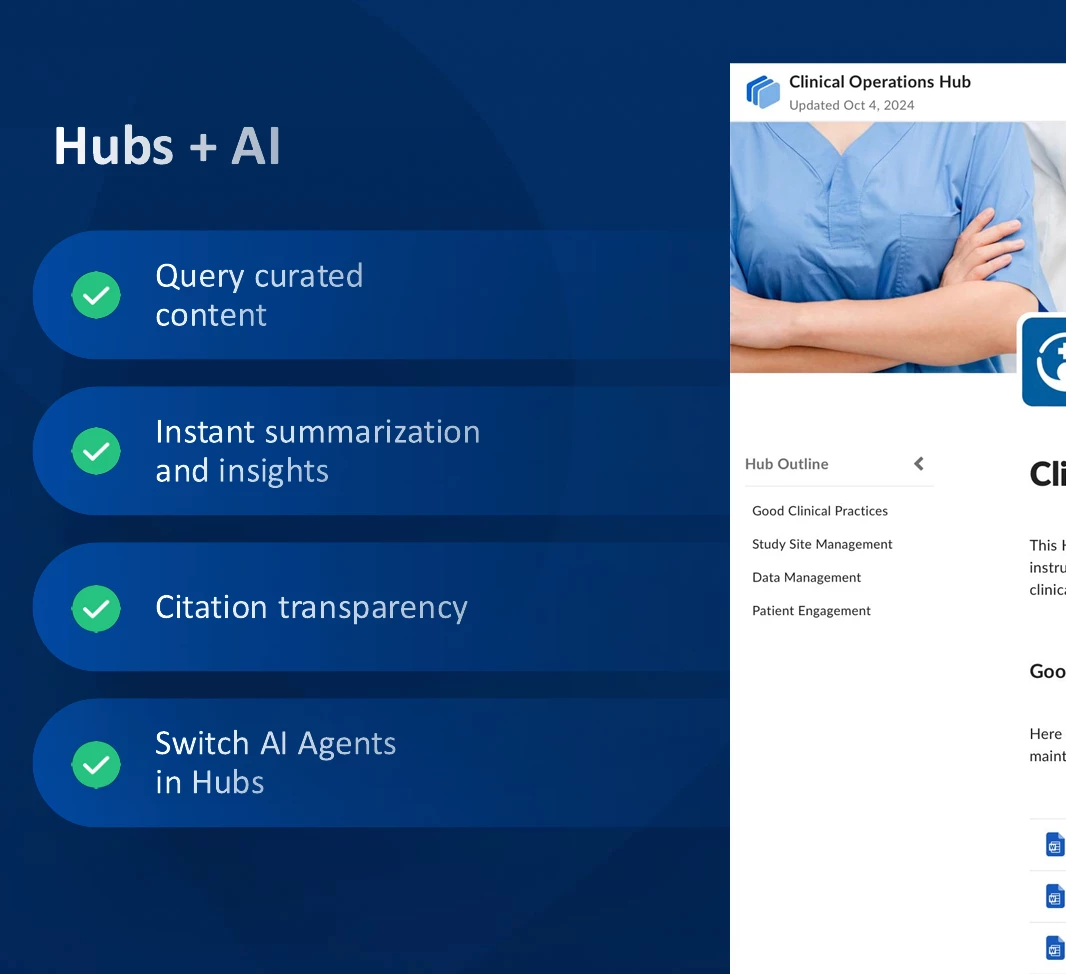
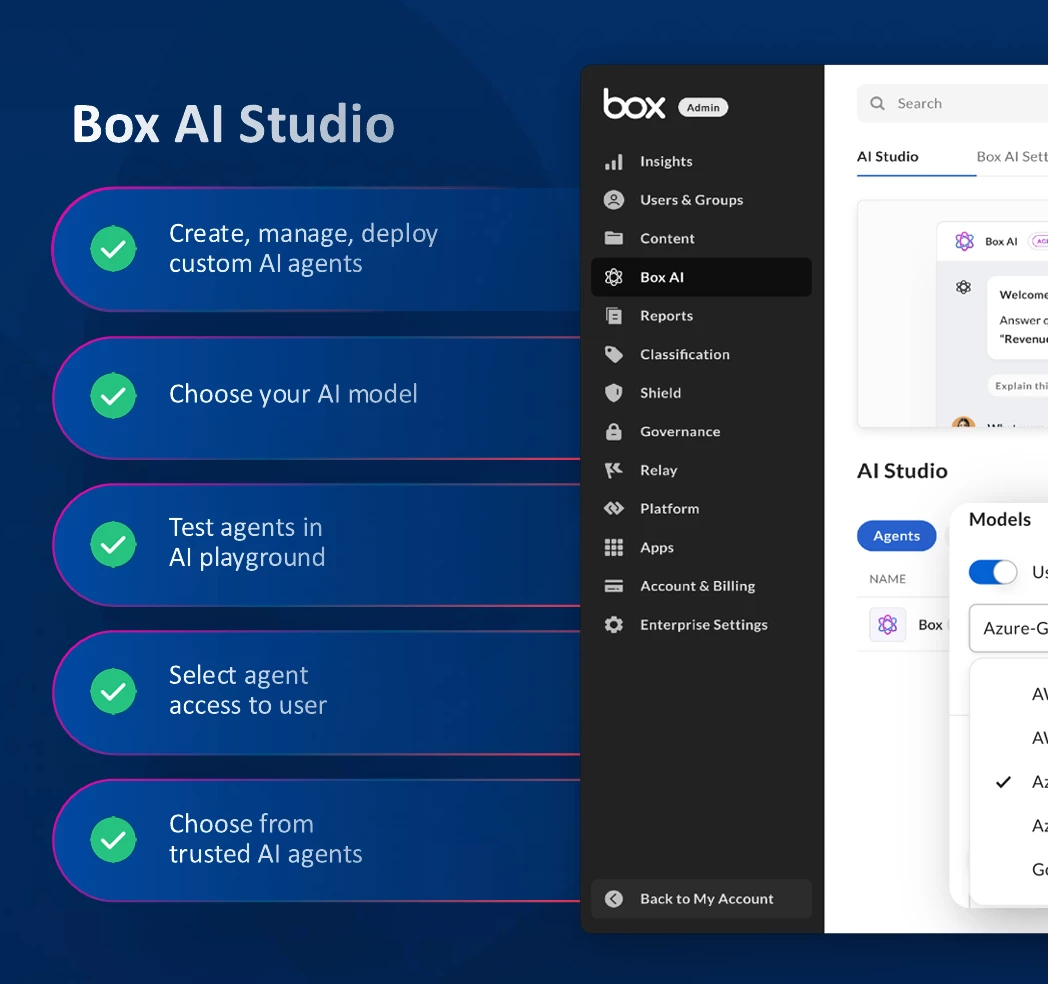
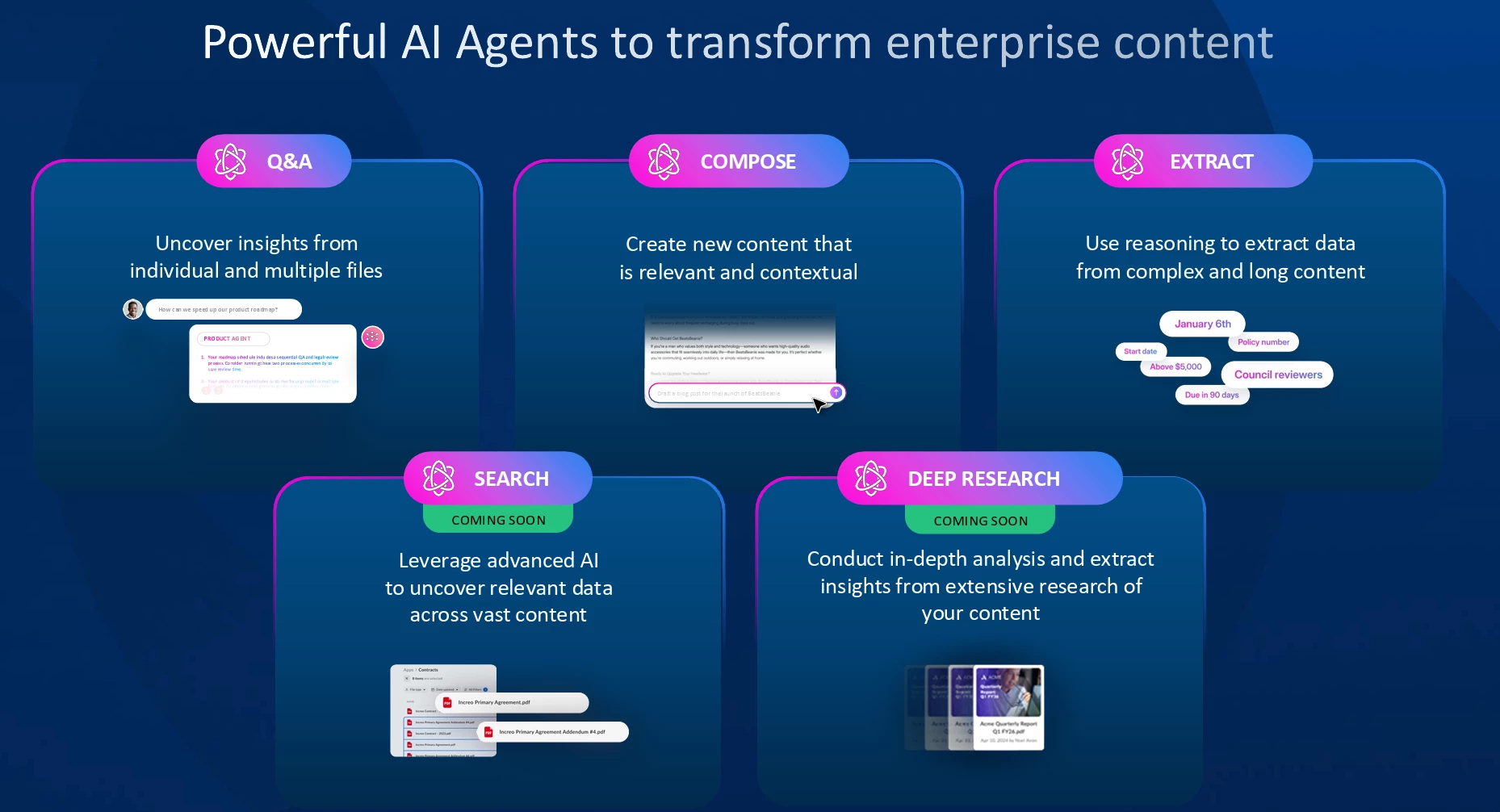
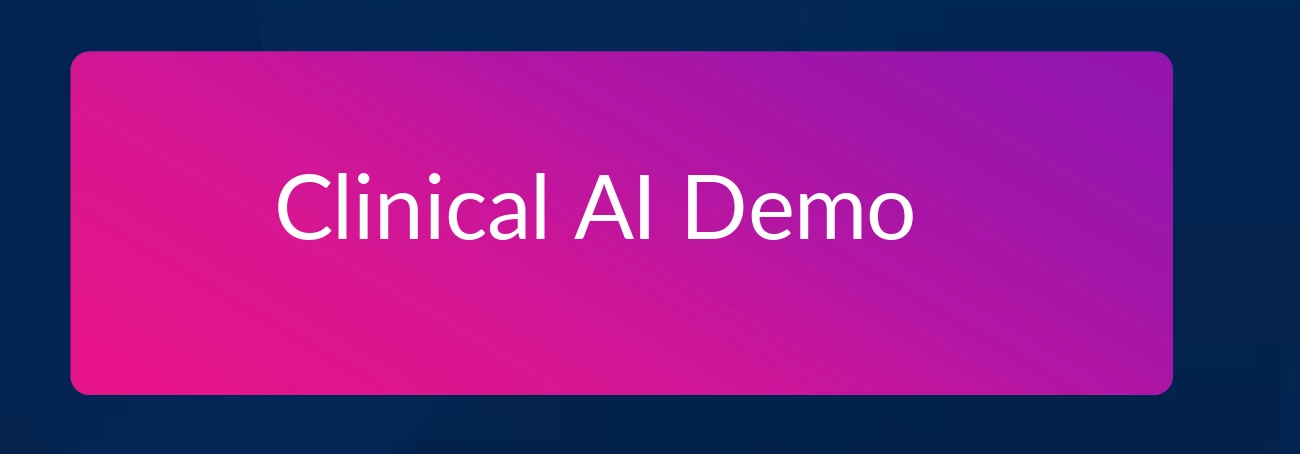
Box Hub Demo: Practical Applications
Use Cases for Box Hubs
Document Traceability and Governance
Critical to decision-making in life sciences is the ability to trace document sources clearly. Allison emphasized this feature:
“I need to know exactly where the feedback from AI came from. I want a good reference point, to know which document from within the hub, we’re sourcing that information.”
“So for example , maybe I need to find out how an adverse event , should be reported for my good clinical practice , within my organization , and I will leverage , AI to help me find that information really quickly in this hub . And of course , what's really helpful with the default capabilities within box is they're gonna be quite robust”
Extending AI with Custom Agents - A Clinical Operations Agent
Allison introduced Box AI Studio, a space for creating custom AI agents tailored to specific workflows. She demonstrated how repeatable processes—such as adverse event reporting—can be streamlined using customized agents.
“Imagine adverse event reporting or other SOPs [standard operating procedures]… These are questions folks need to ask on a regular basis. A customized agent can automate these repeatable tasks efficiently.”
